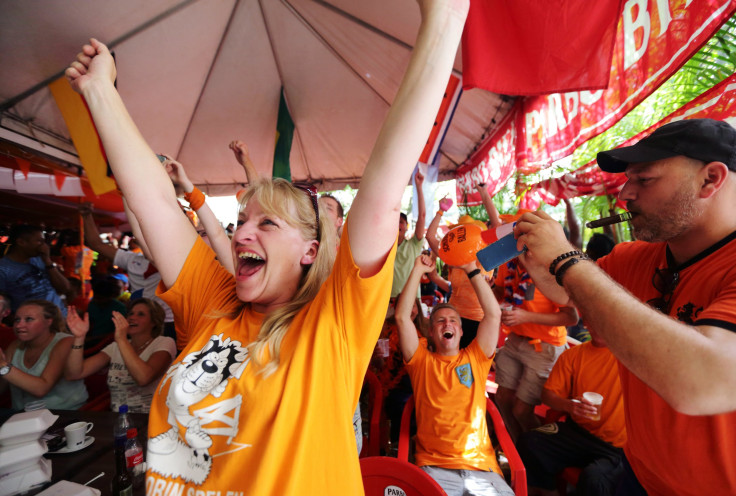Facebook's World Cup Interactions Surpass 1 Billion Comments, Likes Amid Twitter Firestorm

Fans are only halfway through the World Cup tournament, but the international soccer competition has already earned enough attention to become the most discussed, analyzed and “liked” event in the history of Facebook.
Data from the weeks between June 12 and June 29 indicated that over 220 million users were in some way involved in 1 billion Facebook interactions, according to the social network. The onslaught of “interactions” includes likes, comments and posts by Facebook’s users.
“People are having conversations on Facebook about what they watch on a really unprecedented scale,” Nick Grudin, the company’s director of partnerships, told Reuters. “In addition to sharing and connecting with friends, people are engaging in real time with the media and the public voices they care about most.”
The achievement, while certainly a landmark for the decade-old Facebook, is also evidence that the company views itself even more than ever as a competitor with Twitter for real-time television audiences looking toward their second screen.
And that competition is steep: Twitter announced that Saturday’s World Cup match between Brazil and Chile broke the previous record for most tweets per minute (TPM) for a live event. There were 389,000 TPM tracked during the minute that Gonzalo Jara rang a penalty kick off the post. Super Bowl XLVIII held the previous record, 382,000 TPM regarding the February 2014 game between the Seattle Seahawks and Denver Broncos.
There were 8 million tweets about the USA-Portugal match as it was happening, while Facebook announced that 10 million people engaged in 20 million interactions.
Those numbers will likely only continue to rise as the stakes increase, with elimination becoming increasingly likely and more rival countries playing each other.
Facebook also sought to catch up with Twitter last summer when it introduced hashtags. News of the initiative was greeted with reluctance and has largely failed to increase the likelihood that a post would go viral. The reason, according to many accounts, is that Facebook users largely socialize with their own insular networks, whereas Twitter makes it possible for any one person to connect with someone else interested in the same topics.
Still, both the World Cup and Facebook (over 1.2 billion users) have an international appeal that could make it possible for them to cash in on massive advertising revenue. The first week of the tournament alone saw 459 million Facebook interactions, Reuters reported, more than the Super Bowl, Sochi Olympic Games and the Oscars combined.
“Facebook and the World Cup are both fundamentally global, and we knew that Facebook would become a global, mobile stadium where people connect and engage during the tournament,” a Facebook spokesman told CNN. “It turned out to be a unique moment for us, and one that has seen the highest level of conversation for any event Facebook has ever measured.”
© Copyright IBTimes 2024. All rights reserved.




















